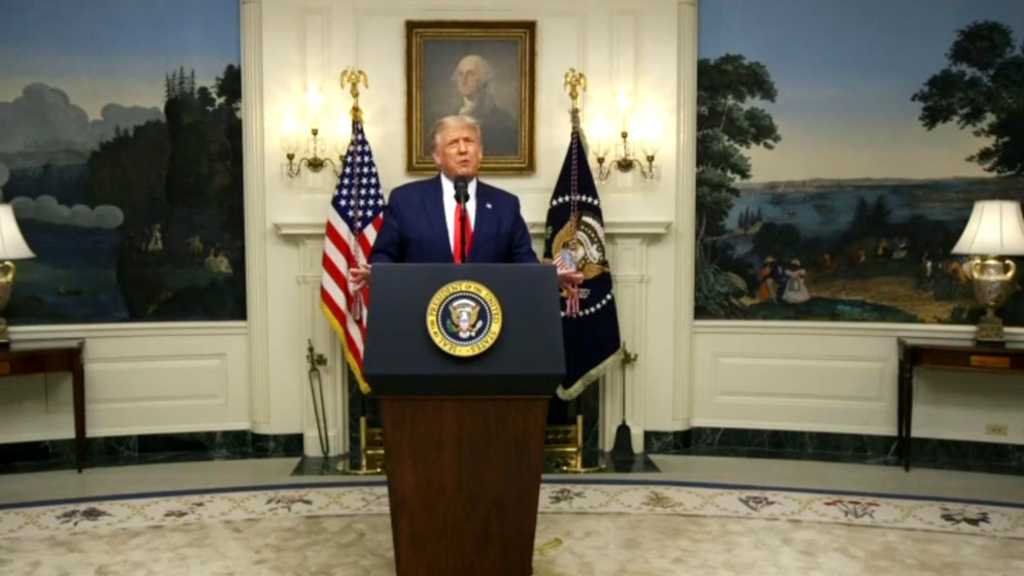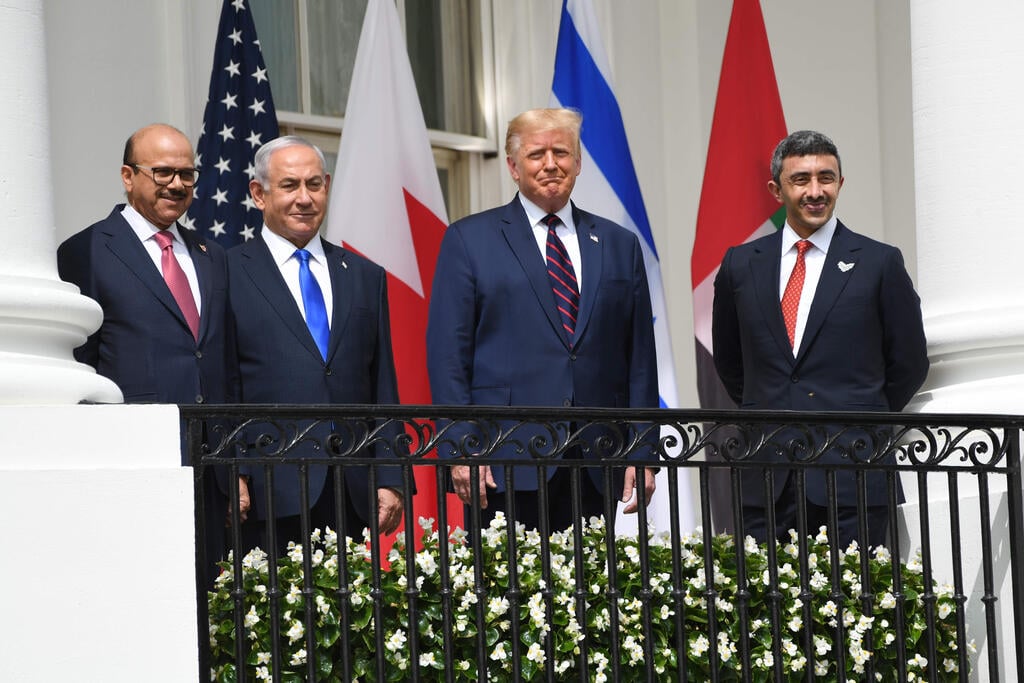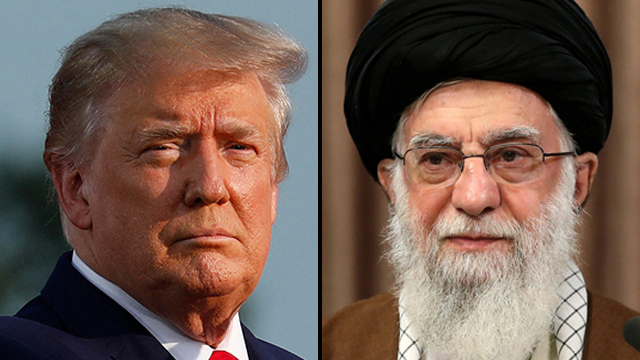Getting your Trinity Audio player ready...
Speaking at the United Nations General Assembly, U.S. President Donald Trump on Tuesday hailed peace agreements his administration brokered between Israel, the United Arab Emirates and Bahrain as "the dawn of a new Middle East".
“These groundbreaking peace deals are the dawn of a new Middle East," Trump said in a pre-recorded address. "By taking a different approach, we have achieved different outcomes — far superior outcomes.”
3 View gallery


U.S. President Donald Trump addresses the UN General Assembly at the White House
(Photo: AP)
We intend to deliver more peace agreements shortly, and I have never been more optimistic for the future of the region. There is no blood in the sand. Those days are hopefully over.”
The Republican president said that the United States-brokered deals represent “peace through strength."
Permanent Representative of Israel to the United Nations Gilad Erdan, who is also set to become the next Israeli ambassador to the United States, took to Twitter to thank the American president.
"The United States and Israel are forging a new path for peace in the Middle East," Erdan wrote. "Thank you to President Trump for helping lead this new effort, proving that "peace through strength" is the right formula, and that partnership with a strong Israel is good for the region."
3 View gallery


(L-R) Bahrain Foreign Minister Abdullatif al-Zayani, Prime Minister Benjamin Netanyahu, U.S. President Donald Trump, and UAE Foreign Minister Abdullah bin Zayed Al-Nahyan participate in the signing of the Abraham Accords at the White House
(Photo: AFP)
Trump also mentioned in his speech the U.S. brokering of economic cooperation between Serbia and Kosovo.
In his speech, Trump demanded that the United Nations hold China accountable for the coronavirus pandemic. He pointed to the virus' origins in China and said the Chinese government acted irresponsibly in allowing the virus to spread.
Trump is not popular at the United Nations and his speech this year comes at a time when UN members are pushing back against Washington. On Monday, Trump declared that all UN sanctions against Iran have been reimposed, a move that most of the rest of the world rejects as illegal.
Trump's statement came shortly after he signed an executive order spelling out how the U.S. will enforce the "snapback" of sanctions.
"My actions today send a clear message to the Iranian regime and those in the international community who refuse to stand up to Iran," he said.
3 View gallery


U.S. President Donald Trump and Iranian Supreme Leader Ayatollah Ali Khamenei
(Photo: AFP, MCT)
The U.S. said it was reimposing sanctions on Iran for being in noncompliance with the 2015 nuclear deal between Tehran and global powers. But Trump in 2018 pulled out of the deal in which Iran agreed to curb its nuclear program in exchange for billions of dollars in sanctions relief.
Few UN member states believe the U.S. has the legal standing to restore the sanctions because Trump withdrew from the agreement. The U.S. argues it retains the right to do so as an original participant in the deal and a member of the council.
Trump has tussled with multilateral organizations throughout his presidency, although his aides say he is not against all multilateral groups, only the ones that aren't effective. After COVID-19 took hold, Trump yanked support from the UN's World Health Organization, saying it was too beholden to China.

